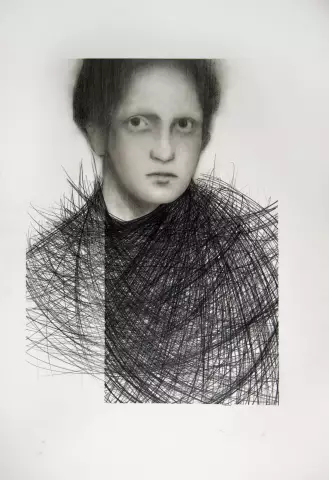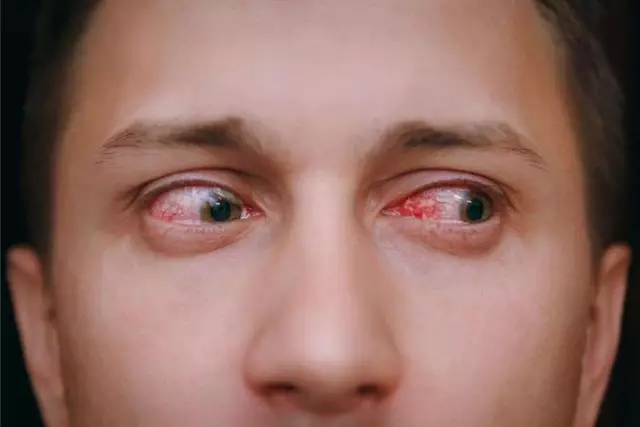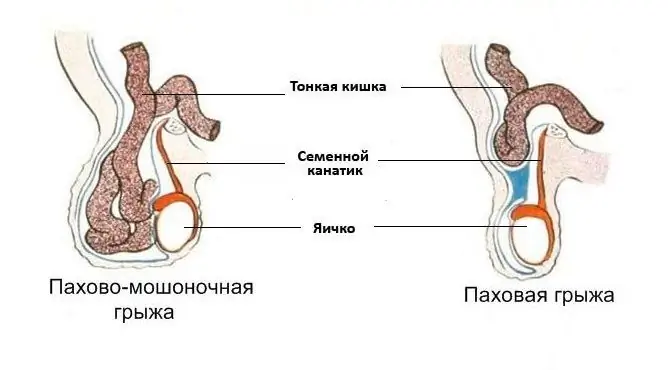- Author Rachel Wainwright wainwright@abchealthonline.com.
- Public 2023-12-15 07:39.
- Last modified 2025-11-02 20:14.
Inguinal lymphadenitis

Inguinal lymphadenitis is a type of inflammation of the lymph nodes. The main function of the lymphatic system is to protect the body from various kinds of external influences. This is done by the formation of special immune cells in it, which protect the body from all kinds of infections. Thus, human health directly depends on the state of the lymphatic system. If a person has inflammation of the lymph nodes, this indicates the presence of an infection in the body that is dangerous to health.
Inguinal lymphadenitis in men and women is a secondary disease that occurs due to the presence of inflammation in any part of the body. The most common cause of inguinal lymphadenitis is a sexually transmitted disease. Primary inflammation of the lymph nodes occurs very rarely, and its pathogens are pathogenic microflora.
Inguinal lymphadenitis symptoms
The main symptoms of inguinal lymphadenitis in women and men are:
- induration and enlargement of lymph nodes in the groin;
- increased body temperature;
- a state of general malaise, weakness;
- the appearance of painful sensations in the groin and lower abdomen during physical exertion and walking;
- redness of the skin around the lymph nodes.
It happens that inguinal lymphadenitis spreads to all lymph nodes. If lymphadenitis is purulent in nature, then its result may be an abscess, in which the walls of the blood vessels decompose, accompanied by constant bleeding. In this case, immediate treatment of inguinal lymphadenitis is necessary.
Causes of inguinal lymphadenitis
If you suspect lymphadenitis, you should immediately contact a therapist, who, in turn, can refer the patient for consultation to other specialists and for an examination.
Sometimes the cause of inguinal lymphadenitis can be a serious disease such as syphilis. Inguinal lymphadenitis in men may be the result of metastases of malignant formation of the testicles or penis. In women, inguinal lymphadenitis often occurs as a result of ovarian cysts and various fungal diseases.

In children, inflammation of the inguinal lymph nodes is extremely rare. If it occurs, then this indicates the presence of damage to the skin surfaces of the lower extremities as a result of abrasions, cuts and injuries. If, after all the wounds have healed, the lymph nodes continue to become inflamed, it is urgent to show the child to a specialist.
Inguinal lymphadenitis treatment
The exact diagnosis and the main cause of inguinal lymphadenitis can only be determined by a doctor. Therefore, the patient should not self-medicate, but seek the advice of a specialist.
Treatment of inguinal lymphadenitis can be conservative or operative. Conservative treatment is used at an early stage of the disease. The patient is prescribed adequate antibiotic therapy. During treatment, the patient is shown complete rest and warmth, but it is strictly forbidden to warm up the inflamed lymph node itself. Heat provokes the further course of the inflammatory process. It should also be borne in mind that lymphadenitis may be a consequence of a malignant tumor, and in this case, heating is strictly prohibited, since it promotes the spread of cancer cells. For the treatment of the disease, special aseptic dressings of local action are widely used.
If the inguinal lymphadenitis has developed into a purulent form, then it can cause necrosis of the surrounding tissues. In this case, the treatment of inguinal lymphadenitis is only surgical. The surgeon makes an incision in the inflamed lymph node, extracts pus from there, and removes nearby dead tissue. With the help of antimicrobial and antiseptic drugs, the doctor drains the opened cavity.
For the treatment of the chronic form of inguinal lymphadenitis, it is first of all necessary to determine the cause of the disease. If the cause is any sexually transmitted disease, then the main treatment should be aimed at eliminating it. As a rule, after eliminating the cause, the inflammation of the lymph nodes goes away on its own. If the inflammation does not disappear, the doctor prescribes an additional X-ray examination and prescribes treatment aimed at strengthening the patient's immunity.
Today, doctors are trying to resort to surgery only in extreme cases, since it has been proven that it can lead to improper outflow of lymph, which, in turn, leads to lymphostasis or elephantiasis.
YouTube video related to the article:
The information is generalized and provided for informational purposes only. At the first sign of illness, see your doctor. Self-medication is hazardous to health!






